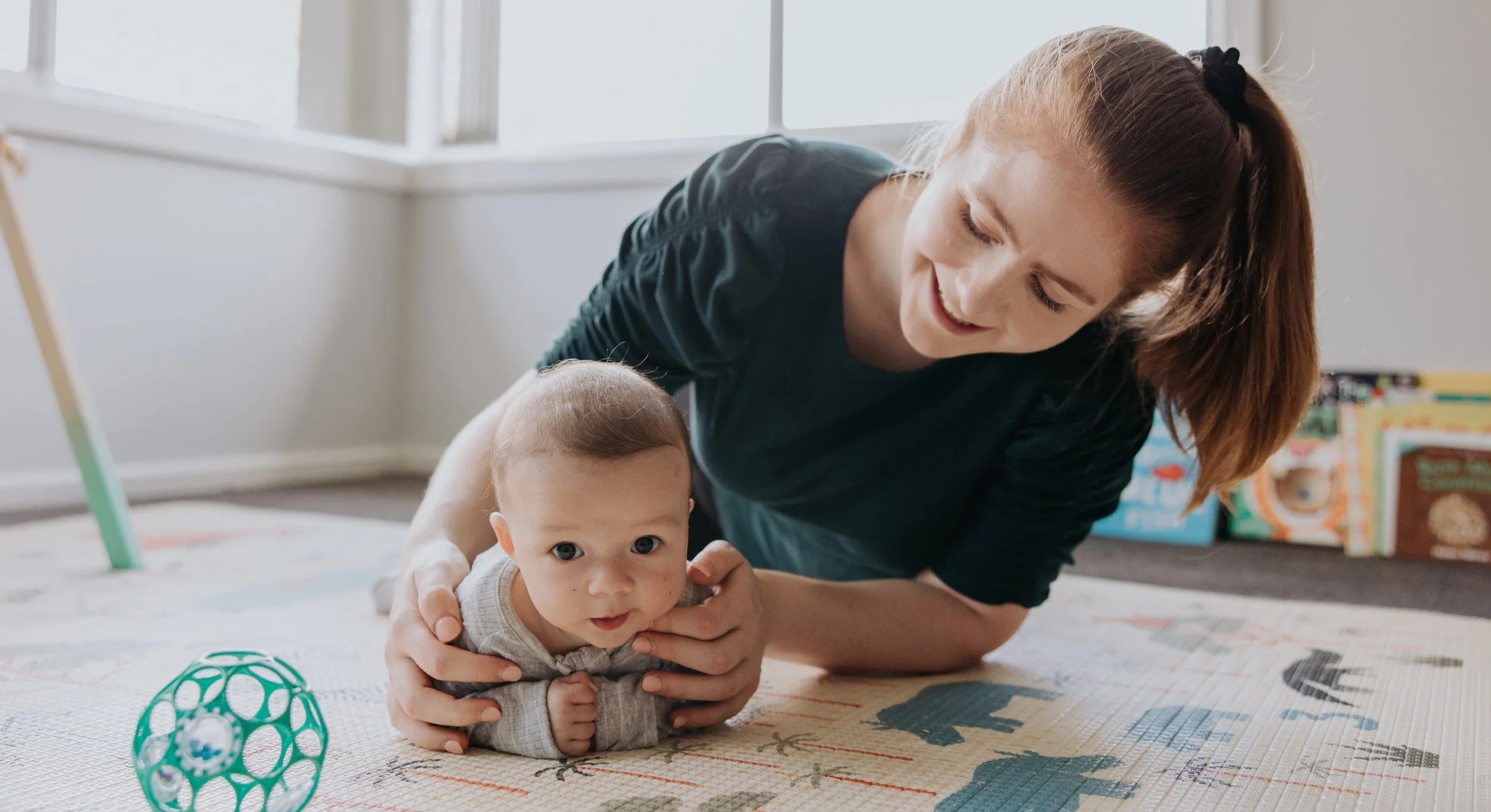Baby Physiotherapy
Supporting Babies as They Learn, Grow, and Thrive
Babies in their first year of life are adapting to their new environment. They may have challenges with feeding or gross motor skills such as rolling, crawling or walking. We work with families to support baby’s development and set them up to thrive
What is Baby Physiotherapy?
Baby physiotherapy involves assessing and treating the unique concerns that present during the first year of life. Babies may have tightness from being in utero, or may have challenges that have arisen since they’ve been earthside. We work with families to develop a plan to address tightness, weakness, muscle coordination and sensory system development to promote babies to move well. We see children with feeding concerns, musculoskeletal concerns, neurological concerns or development concerns.
Trusted Physiotherapy for Babies’ Early Growth and Development
Peadaitric Physiotherapy supports babies with a wide range of early developmental needs, including difficult feeding, torticollis, hip dysplasia, plagiocephaly (baby with flat head), positional talipes, prematurity, neurological concerns, genetic or metabolic conditions, delayed milestones, and challenges with head control. Through gentle, evidence-based assessment and family-centred care, we identify what your baby needs and create an individualized plan—working closely with your medical and allied health teams to help your child build strength, symmetry, and confidence as they grow.
Gentle, Thorough Assessments
for Your Baby’s Best Start
Your baby’s physiotherapy assessment begins with a warm conversation about their birth, development, sleep, and feeding before we complete a gentle, head-to-toe evaluation of their movement, muscle tone, and joint function. We explain our findings clearly, create a personalised treatment plan with practical strategies for home, and collaborate with your GP or specialists—arranging scans or further referrals when needed—to ensure your baby receives the most comprehensive and supportive care.
1. Initial appointment
We start with a chat! We talk about baby’s birth and how they’ve been developing since being earthside. We delve into their sleep and feeding patterns, any concerns that have arisen and may ask more specific questions about your presenting concern.
2. Thorough assessment
We always do a ‘Head-to-Toe’ Assessment to fully assess baby’s muscles and joints. We look at how baby’s moving in different positions such as on their back, on their tummy or in sitting. We explain what we are observing throughout our assessment and why it’s relevant.
3. Develop a treatment plan
Once we have assessed baby, we will summarise our findings and discuss a treatment plan. This may include stretches, strengthening exercises, sensory based interventions, positioning and movement advice.
4. We collaborate
We like to link in with your GP or specialist to coordinate our treatment approach. We want the best outcome for your baby which requires everyone on the same page.
5. Referral to other therapists
Sometimes we may need to refer your baby for a scan or to another specialist to get some more information to help with a diagnosis or treatment plan.
Questions, Answered with Care
Navigating movement concerns for baby can feel overwhelming, but you’re not alone. Explore our FAQs to learn what baby physiotherapy involves, who it can help, what sessions look like, and how we support families every step of the way.
-
If you can, baby’s blue book can be helpful for us to look at as it contains baby’s growth trajectory and birth history.
Dress baby in something they can move in that is easy to take on and off as we often look at baby’s hips, spine and feet during our assessments.
-
Feeding concerns are common in babies with muscle tightness, especially with conditions such as torticollis. We often see babies with poor latch, reduced mouth opening due to tightness, or parents will report nipple trauma and being able to breastfeed better on one side. The professional consensus statement for ankoglossia (tongue ties) recommends assessing for head and neck conditions prior to considering involvement of oral structures such as tongue ties.
-
We recommend coming for an assessment if you have any concerns about your baby’s movement or feeding. We prefer to see children with neck tightness between 2-4 weeks ideally or when it is first noticed by parents.
-
You don’t require a referral to see us – you can book online or call the clinic to speak with our reception team.
-
We don’t see a large difference between each therapy – we think it comes down to the individual practitioner and their training. There are great therapists within every profession. The most important thing is finding the therapist who best supports your family.
In physiotherapy, we focus lots on the development of the musculoskeletal system – looking at muscles, joints/bones and neurological system.
Since the release of the international position statement on spinal manipulation and mobilisation in children aged under 2 years old, we do educate families that hands-on intervention to the spine or soft tissue adjacent to the spine has been contraindicated (not recommended) due to the increased risk of adverse reaction comparative to other evidence-based therapies. Click HERE for link to Consensus Statement
-
Our initial appointments are around 1 hour and follow up appointments are around 45 minutes.
Have questions? Go to our FAQs
Help Starts Here!
If you're seeking care for your child's physical development and well-being, we're here to help. We are committed to providing compassionate and effective treatment tailored to your child's unique needs. Whether your child is experiencing difficulties with mobility, balance, coordination, or other physical challenges, we're here to support them on their journey toward improved strength, function, and independence.
Contact us today to schedule an appointment and take the first step toward unlocking your child's full potential.

